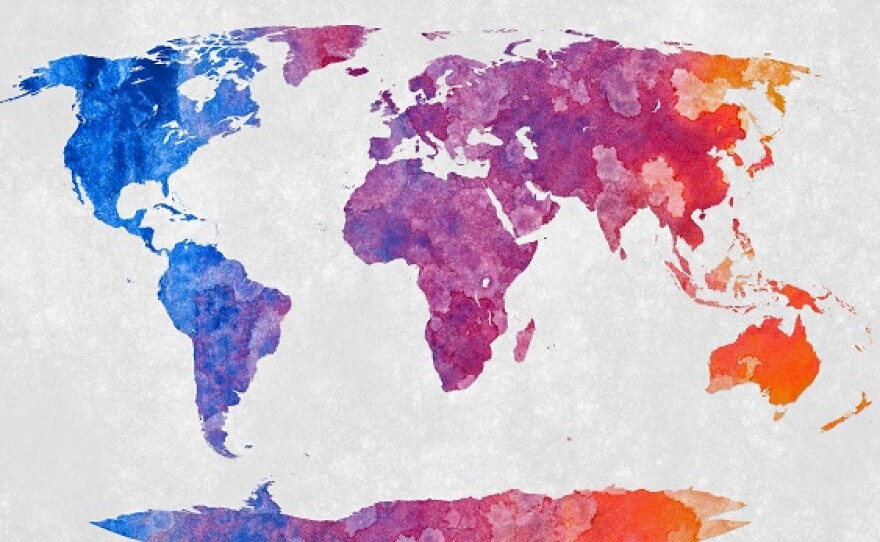In the middle of a landmass in the Northern Hemisphere bordered by oceans, people call themselves Americans. According to both their own laws and broader international ones, they are members of a group known as a nation-state – in this case the United States of America.
The idea is the group shares common values, participates in a shared economic system and more or less agrees that its leader represents the group in international negotiations. But when did the concept of a nation-state first emerge? And is the political model on its way out? Host Frank Stasio speaks with experts about the past, present and future of the nation-state.
Joseph Grieco, professor of political science at Duke University, sets up the historical foundation of the state and explains how states derive their power. Melissa Aronczyk, author of the book “Branding the Nation: The Global Business of National Identity” (Oxford University Press/ 2013), talks about how nations strive to shape their shared values and leverage global power through branding. Author Rana Dasgupta shares his predictions for the demise of the nation-state structure as evidenced by the refugee crisis and the rise of alternative financial structures. And journalist Jacob Siegel explains how crypto-anarchists are finding ways to navigate outside of the nation-state structure.
INTERVIEW HIGHLIGHTS
Political scientist Joseph Grieco on what makes a modern state:
It's a relatively recent form of political organization. That is to say it's a territory in which there's a population and a government that has relatively effective authority within the borders and the ability to reach agreements with foreign governments. The national character of some of these states has to do with the belief on the part of individuals … Of a certain set of common beliefs, common sense of history, common cultural interests, such as sports, and also ability – I think very importantly – some commitment to an ability to communicate in a common language.
Writer and media professor Melissa Aronczyk on what sparked her interest in how nations brand themselves:
I was in charge of creating an ad campaign to basically sell Quebec to American tourists … But the strange instructions they gave us were that we could not use the word Canada in any of the advertising. Not only that, but when we referred to Quebec we could not refer to it as a province, but we were asked to refer to it as a nation. I was just absolutely floored by that when it happened. It had never really occurred to me until then that advertising could be used for political purposes.
Writer Rana Dasgupta on what he argues is a demise of the nation-state:
What we've seen over the last 40 years, beginning of course with [Margaret] Thatcher and [Ronald] Reagan, is a very, very substantial revolution led by political, financial and corporate elites which has basically succeeded in what it set out to do, which was to re-establish the supremacy of capital over states. It has succeeded so extraordinarily that states have been massively diminished in their status in the world. They've lost not only actual power, but also symbolic power, which is one of the reasons why we're seeing such kind of hysterical reactions in so many countries.
Writer Jacob Siegel on his profile of crypto-anarchist Cody Wilson who is trying to disrupt the nation-state:
Cody Wilson is best known as the 3D guns guy. With his company Defense Distributed he came up with this idea that he referred to as the “wiki weapon.” And basically what the wiki weapon was was a way of putting the ability to manufacture firearms in people's homes. It was like DIY gun manufacturing ... It relied on this new commercial applications of the technology 3D printing. And it also relied on a kind of WikiLeaks open source sharing format where the designs for these guns could be distributed online … What runs through these different strains of his ideology is a hard anti-statism and also a kind of conservative or reactionary critique of modernity itself. But the ideology he's closest to is called crypto-anarchism.
Note: This program originally aired on May 2, 2018.




